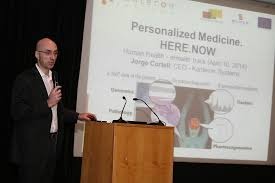The Future Is Personal: How Advances in Personalized Medicine and Pharmacogenomics Are Changing Healthcare
There’s a quiet shift happening in healthcare. Gone are the days when doctors treated everyone with the same medicine and hoped for the best. In its place, a new way of thinking is emerging—one that’s centered around you. Personalized medicine and pharmacogenomics are leading this shift. They’re not just making medicine smarter—they’re making it yours.

What Personalized Medicine Means
Personalized medicine focuses on making medical care more specific. It’s about understanding that every person’s body works a little differently, and those differences matter—especially when it comes to treatment. This approach uses genetic tests, health history, lifestyle habits, and even environmental factors to shape treatment plans that are more likely to work for each individual.
Take cancer care as an example. In the past, patients were usually treated based on the type of cancer they had—breast, colon, lung. Now, doctors can dig deeper and treat based on the genetic changes within the tumor itself. That shift makes it possible to use drugs that target those mutations directly. The result? Fewer side effects and better chances at fighting the disease.
Pharmacogenomics: Matching Medicine to DNA
Pharmacogenomics is a big part of personalized medicine. It studies how your genes affect the way your body handles medication. Some people might break down a drug too fast, others too slow. That can make the drug not work at all—or cause unwanted side effects.
For example, people with a certain gene may not respond to a common blood thinner called clopidogrel. If doctors don’t know that, they could prescribe it anyway, and it wouldn’t protect the patient from dangerous clots. But if they run a genetic test first, they can avoid that mistake and choose a better option.
This kind of knowledge is powerful. It means fewer side effects, less trial-and-error with prescriptions, and more confidence that the treatment will actually help.
Tech Makes It All Possible
One of the biggest reasons this new approach is taking off? Better technology. It used to cost tens of thousands of dollars to analyze someone’s entire genome. Now it can be done for a few hundred. That change has opened the doors for more testing in clinics and hospitals.
On top of that, computer programs and artificial intelligence are being used to look through massive amounts of data—genetic, clinical, and personal—to find useful patterns. These tools help researchers understand how diseases work and how best to treat them.
Health records are also getting smarter. Some systems now include genetic test results, so doctors can see all that information in one place when making treatment decisions.
Challenges Still Ahead
Despite all the progress, there’s still a long road ahead. One major problem is access. These advanced tests and treatments aren’t always available to everyone, especially in areas with fewer healthcare resources. Even when they are available, insurance often doesn’t cover them.
Another problem? Most of the research has focused on people of European backgrounds. That creates a gap when trying to understand how drugs affect people from other groups. Without more diversity in genetic studies, personalized medicine risks becoming less personal for many people.
Privacy is also a concern. Sharing DNA information can feel risky, and people worry about how their data will be used. Even though there are rules in place to protect patients, this is still a gray area that needs attention as the field grows.
And not every doctor has the tools or training to use genetic information well. If a provider doesn’t fully understand what the test results mean, they might not use them effectively—or might avoid using them at all. So there’s a growing need for more education in this area, both for doctors and patients.
Looking Forward
As more people get access to testing and as research becomes more inclusive, the benefits of personalized medicine will become more widespread. There’s already work being done to figure out how genes affect things like nutrition, pain, and even response to vaccines.
Imagine catching a disease years before it shows symptoms, simply by looking at your genes. Or finding out the best treatment for your illness on the first try, not the fourth. That’s the promise of personalized medicine. It’s about moving away from “average” treatment plans and instead, choosing care that actually fits the person.
Right now, we’re still early in that journey. But with each step forward, medicine becomes more personal, more thoughtful, and—hopefully—more effective.




